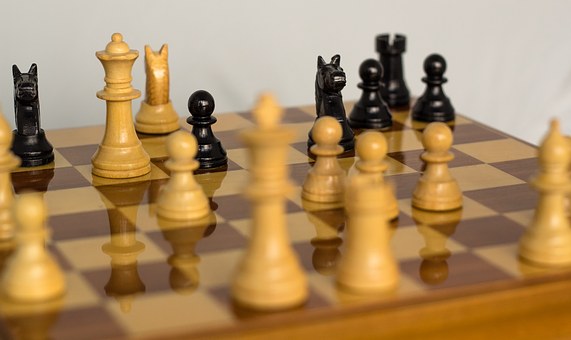Chess

When I was eight years old my father taught me how to play chess. Naturally, he won every game. And yet, I persevered.
I studied chess books and worked hard to improve my game. By the time I was ten years old, I’d become a pretty good player. Sadly, this turned out to be a double-edged sword. As soon as I started to win consistently, my dad lost interest in playing chess (at least with me). And still I worked to become better.
When I was a senior in high school, I became the president of the chess club. That year I experienced the high point of my high-school chess career.
At a citywide tournament, I was matched against the very best player from Fairfax, a school that had earned the reputation for being the top high school chess team in Los Angeles.
After the one-hour time limit, our game was still unfinished, so the Fairfax faculty advisor, who was running the tournament, hovered over the chess board to adjudicate our game. That means he studied the position of each player’s pieces and decided who would have won the game if it had continued. I was shocked when he called the match in my favor. But, hey, a win is a win and I was able to advance to the next round.
When I was 31, I returned to playing chess recreationally and entered several tournaments. My chess career ended for good, however, when I realized that very few women played tournament chess, and it was not the best way for a single man to meet the woman of his dreams (that would be Daveen, of course). To this day I don’t know if Daveen plays chess, or even checkers for that matter. But we have found other ways to amuse ourselves.
I’m thinking of introducing some of my grandchildren to chess, but only until they start to beat me.
Sic transit gloria mundi. Translation – “thus passes the glory of the world.”
Alan
